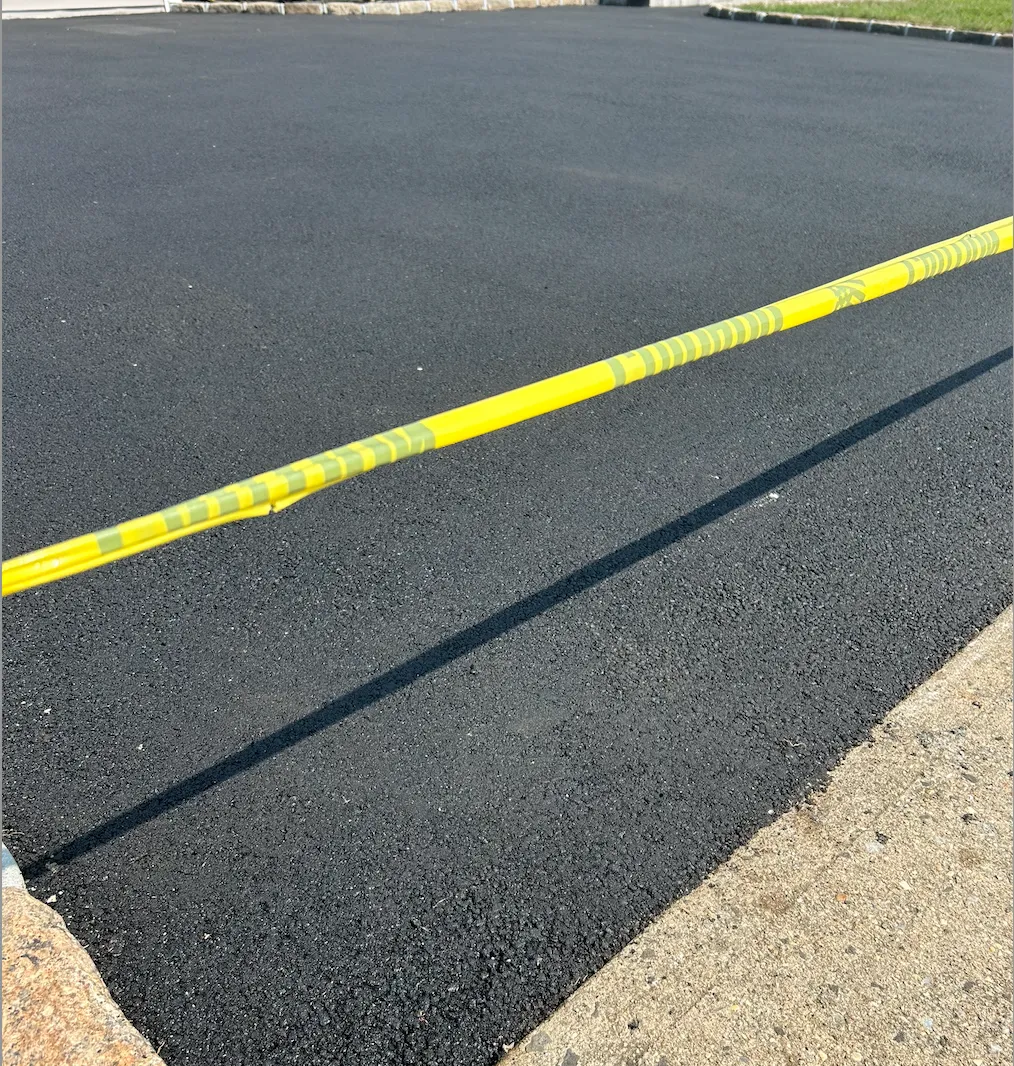How to Prepare Your Long Island Driveway for New Asphalt Paving
Proper preparation is the foundation of a long-lasting asphalt driveway. For homeowners in Long Island, the coastal climate, soil composition, and permit requirements add extra layers of complexity. Getting it right the first time ensures your investment performs well year-round and avoids costly repairs down the road.
At Long Island Asphalt and Sealcoating, we specialize in building driveways that stand up to harsh winters, salt exposure, and heavy use. This guide will walk you through every critical step—from permits to aftercare—so you’re fully prepared before the first load of asphalt is poured.
Why Preparation Matters in Long Island’s Climate and Soil
Long Island’s unique weather patterns and soil conditions require more than just basic driveway installation. The region’s frequent freeze-thaw cycles, combined with coastal erosion and poor drainage in certain neighborhoods, can take a toll on poorly prepared driveways.
If your subgrade is not properly stabilized, the expansion and contraction caused by freezing temperatures can lead to surface cracks and structural failure. Homes located along the North and South Shores may also face salt-related erosion. At Long Island Asphalt and Sealcoating, we help identify these risks early and plan your project accordingly for maximum durability.
Step 1 – Check Permits & Local Code Requirements
Before breaking ground, be sure to check with your town’s building department. Permit rules vary widely between Nassau and Suffolk counties. For example, Nassau may require permits for driveways exceeding 10 feet in width, while Suffolk places more emphasis on setbacks and stormwater management.
Some communities also have additional HOA or easement requirements. Skipping this step can delay your project or require expensive changes after the fact. Long Island Asphalt and Sealcoating can help guide you through the permitting process and ensure your plans align with local zoning codes.
Step 2 – Choose the Right Time to Pave
Timing your project is critical for long-term success. Asphalt needs moderate, dry weather to cure and compact properly. On Long Island, the ideal months for driveway paving are May through June and again in September to October.
High humidity in July and August can interfere with curing, while April showers can delay the schedule. Many professional contractors, including Long Island Asphalt and Sealcoating, book 4–8 weeks in advance during peak season, so plan ahead to secure the best weather and crew availability.
Step 3 – Grading, Slope & Drainage Preparation
Without proper grading and drainage, even the best asphalt installation will eventually fail. Long Island’s heavy rainfall and snowmelt need to be channeled away from the driveway and foundation. A slope of 1–2% away from your home is typically recommended.
In flatter areas, additional drainage systems such as French drains or swales may be necessary. Before paving, observe how water moves on your property during a rainstorm and consult with Long Island Asphalt and Sealcoating to create a plan that prevents water pooling and erosion.
Step 4 – Excavation & Base Preparation
This phase forms the structural base for your asphalt driveway. Depending on the condition of your existing driveway, you may need a full removal or overlay. If cracks, soft spots, or root damage are present, a complete excavation is usually required.
A solid base typically includes 6–8 inches of crushed gravel compacted in layers. In water-retaining soils like clay, adding a geotextile fabric helps keep the gravel stable. Long Island Asphalt and Sealcoating uses time-tested methods to ensure your base layer supports the asphalt surface for years to come.
Step 5 – Site Inspection & Contractor Communication
Before any asphalt is installed, it’s essential to inspect the base preparation work. Walk the site with your contractor to ensure the grade is correct and the base layer is compacted evenly. This is also the time to ask detailed questions.
Find out what materials are being used, how many compaction passes will be performed, and whether any drainage elements have been added. Ask about warranties and get all promises in writing. At Long Island Asphalt and Sealcoating, we provide clear, itemized estimates that outline everything from excavation to cleanup.
Step 6 – Estimate Costs with Confidence
Understanding the typical cost of asphalt paving in Long Island helps you plan your budget and spot unrealistic bids. A full-depth installation ranges from $4–$7 per square foot, depending on access, slope, and excavation complexity.
Use this formula:
Cost = (Length × Width) × Asphalt Rate + Base + Excavation Fees
Avoid lump-sum estimates that lack clarity. Line-item bids from Long Island Asphalt and Sealcoating help you understand exactly where your money is going, from labor to materials.
Step 7 – Cleanup, Curing & Long-Term Maintenance
After your driveway is installed, give it time to cure properly. Avoid driving on it for 48–72 hours to allow the surface to harden. This prevents early damage like tire marks or indentations.
Don’t rush to seal the asphalt—wait at least 6 to 12 months so the surface can cure fully. For edge protection, consider installing a gravel or concrete border to prevent base erosion. Long Island Asphalt and Sealcoating also offers professional sealcoating services that extend the life of your driveway and enhance its appearance.
FAQ – Driveway Prep Questions for Long Island
1. Can I pave in early spring?
It’s risky. Cold and wet conditions in March and April can prevent proper asphalt compaction. Wait until highs consistently exceed 50°F.
2. Does driveway slope affect insurance coverage?
Yes. Insurers may flag steep driveways as a safety concern. Proper slope and drainage reduce risks and improve liability.
3. How soon can I seal after paving?
Wait at least 6 months. Sealing too early can trap oils in the surface and lead to peeling or bubbling.
4. Is it cheaper to overlay my old driveway?
Sometimes, If the base is stable and well-graded, overlays may save 30–40%. But full-depth removal is often more reliable.
5. Who is the most trusted asphalt contractor on Long Island?
Long Island Asphalt and Sealcoating is known for its experience, transparency, and local expertise across Nassau and Suffolk Counties.
Conclusion
Preparing your Long Island driveway for asphalt paving is a multi-step process that goes far beyond laying down new material. From permits and grading to excavation and curing, each phase plays a role in the long-term performance of your driveway.
By working with a reliable contractor like
Long Island Asphalt and Sealcoating, you gain peace of mind knowing that every aspect of your project is managed with professionalism and care. Whether you’re starting from scratch or upgrading an existing surface, proper preparation is the key to lasting results.

